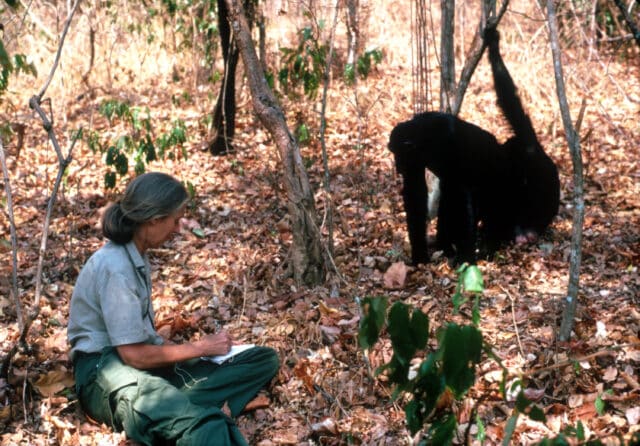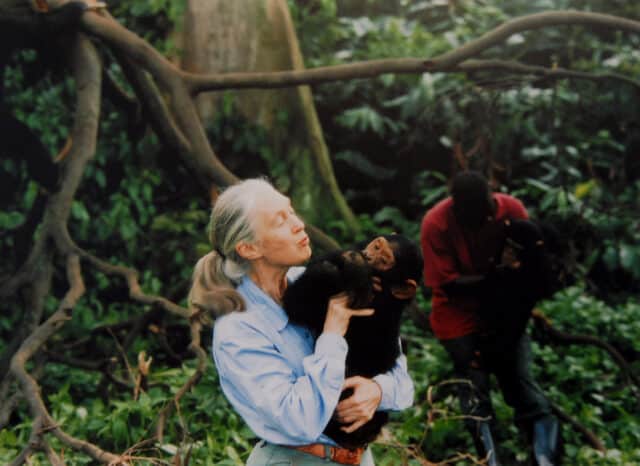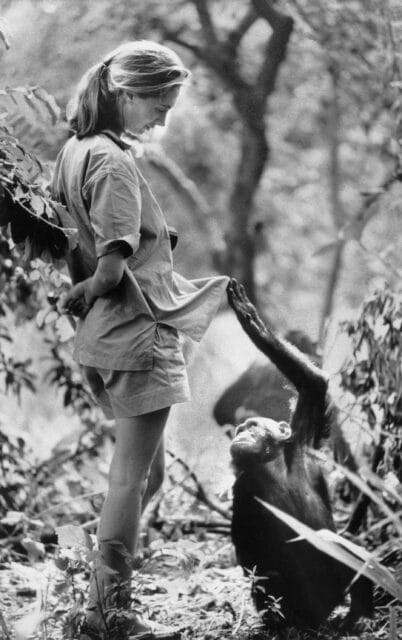Jane Goodall, whose groundbreaking work with chimpanzees redefined the relationship between humans and animals, has died. She was 91.
The Jane Goodall Institute announced her passing on Wednesday, Oct. 1, 2025, confirming that she died of natural causes while in California during a U.S. speaking tour.
“Dr. Jane Goodall DBE, UN Messenger of Peace and Founder of the Jane Goodall Institute has passed away,” the organization shared on social media.
A Young Woman in the Forest
Goodall was just 26 when she traveled to Tanzania in 1960 to observe chimpanzees in the wild. With little more than a notebook and binoculars, she entered a field dominated by men and without a formal scientific degree.

Her patience and unconventional approach soon led to discoveries that would upend biology textbooks. She documented chimps making and using tools, a trait once thought to be uniquely human. She also observed them forming bonds, showing affection, and even waging violent conflicts.
“They kiss, embrace, and hold hands,” Goodall told ABC News in 2020. “They can be brutal, but they can also be altruistic. In so many ways, they are like us.”
Shaping Science and Culture
Goodall’s findings challenged long-held assumptions about humanity’s closest relatives and altered the way researchers approach animal behavior. Her career inspired generations of scientists, conservationists, and everyday admirers who saw in her work a call to care for the natural world.

Beyond the forest, she became a fierce advocate for conservation and environmental protection. Her lectures and books reached audiences far beyond academia, and she spent decades traveling the world to encourage action against climate change and habitat destruction.
A Lasting Legacy
Goodall’s impact stretched well beyond science. As a UN Messenger of Peace, she used her platform to inspire hope, often reminding listeners that individual choices—whether planting trees or reducing waste—can ripple outward to create meaningful change.

Her life and work reshaped how humanity sees itself in relation to other species. While she may be gone, the forests she fought for and the institute she founded continue to carry her message: that humans are not apart from nature, but part of it.



